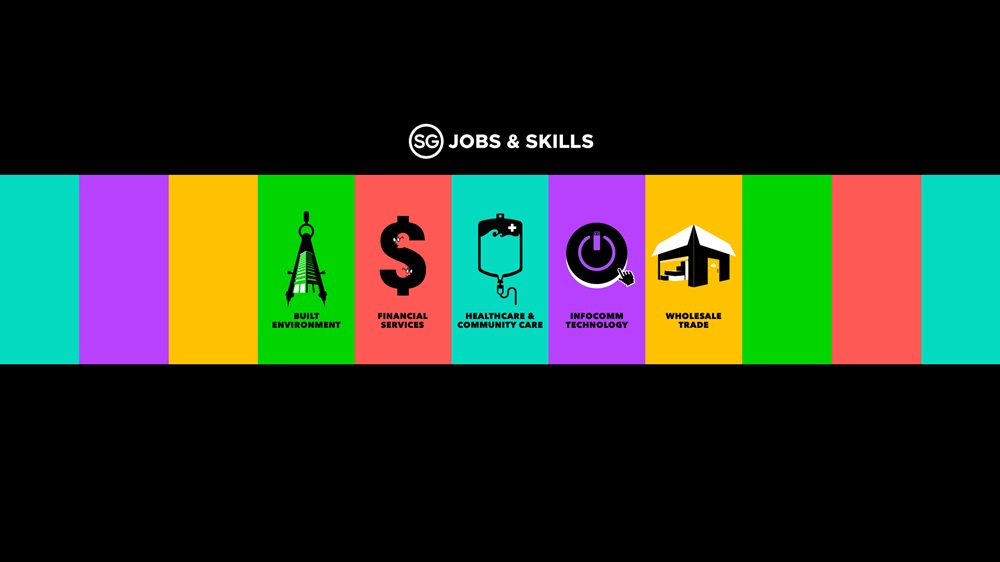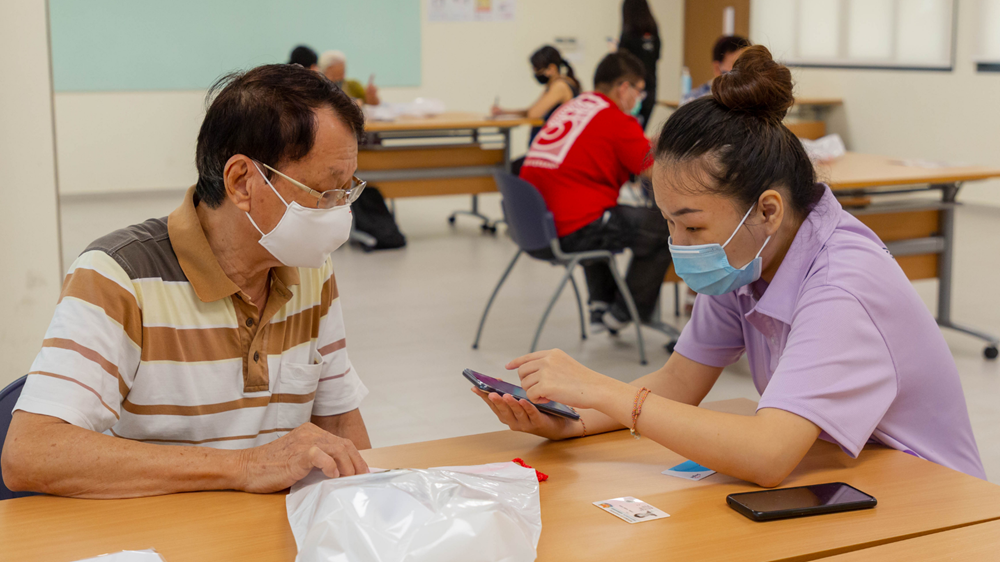
The 70-something Uncle peered at his brand-new mobile phone through his lao hua yan (presbyopia) spectacles.
“Miss, I cannot see the words,” said Uncle Tay in a mixture of Mandarin and Hokkien. “Can you increase the size for me and change it all to Chinese?”
Digital ambassador Joy Tan, 19, gladly obliged. She quipped, “Now to use the phone, you must swipe up.”
“Huh?” said Uncle.
“Swipe up, like that. No! Don’t press the phone so hard or you may damage the phone! Just lightly, swipe up, you try.”
Upon success, Joy gave him a round of applause. “Yay! Now you see this green button here? I will teach you how to call your wife.”
For Uncle Tay who had never owned a smartphone in his life, simple instructions on how to turn on the phone, charge it, screen gestures like swiping, making a call, and adjusting the volume, took a good 20 minutes.
To teach him how to answer a phone call, Joy made several calls to his new phone, so he could practice pressing the “green button”.
Some seniors who were attending the 1-to-1 coaching sessions took even longer.
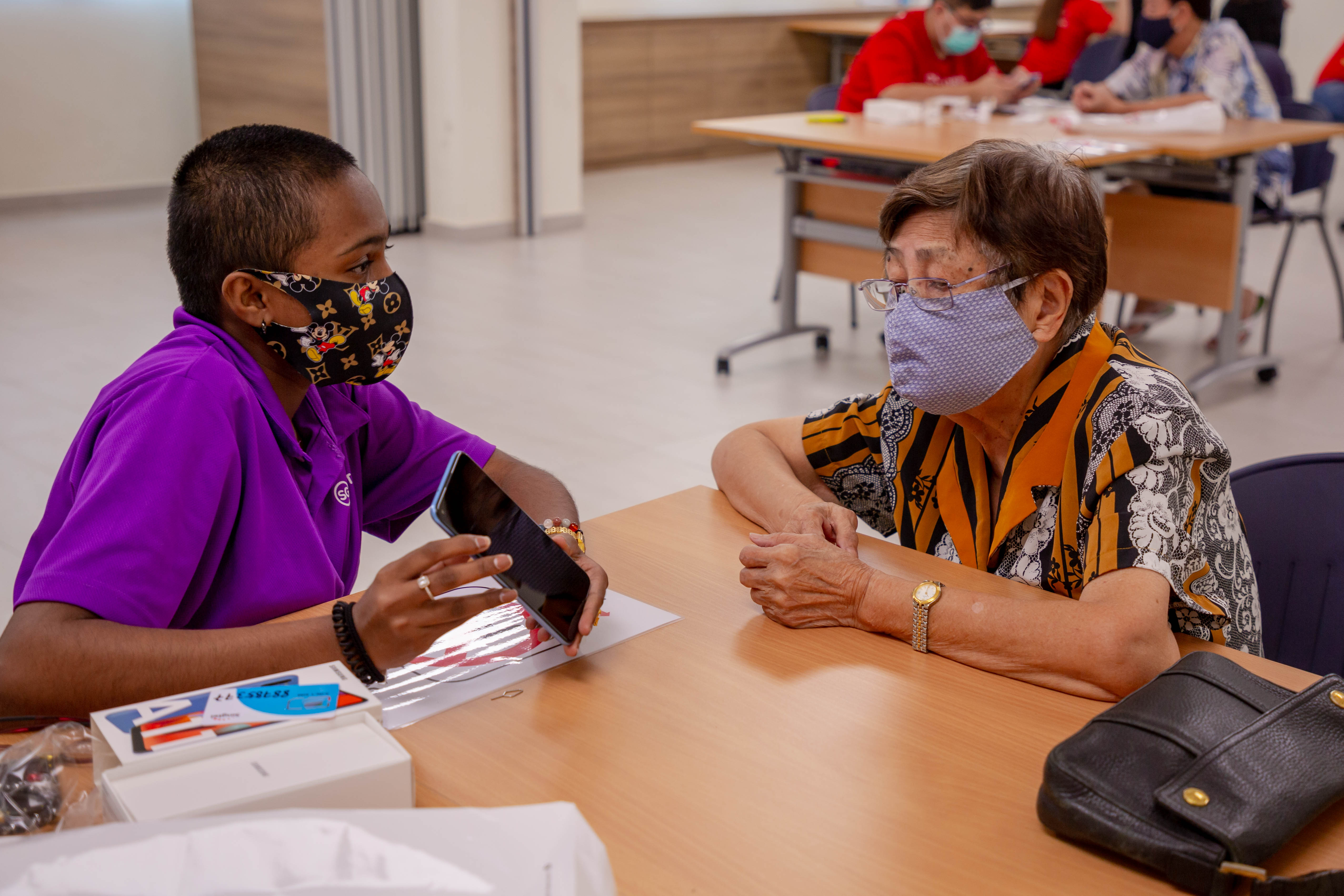
Worth taking the time to learn
But for the likes of Mdm Khoo Yew Geok, 83, who took down some notes on a pad of paper during her 30-minute session, it was well worth it.
“I came here to learn since I have nothing to do! I find it all very confusing, it’s all Greek to me and I still feel like I don’t know much,” said Mdm Khoo in English. “But I have to start somewhere.”
She and Uncle were amongst some low-income seniors who had gathered at the Teck Ghee Community Club (CC) on a Saturday afternoon, to try and learn how to use a smart phone under the Seniors Go Digital Programme.
Seniors Go Digital is a new programme by the government to strengthen digital literacy and access among our seniors.
Driven by the InfoComm Media Development Authority, 1000 Digital Ambassadors deployed through the Singapore Digital Office provide one-on-one help to seniors in using their smart phones to carry out functions like how to Whatsapp, scan QR codes and make e-payments.
With a target to help 100,000 seniors by March 2021, Seniors Go Digital has already helped 16,000 of them.
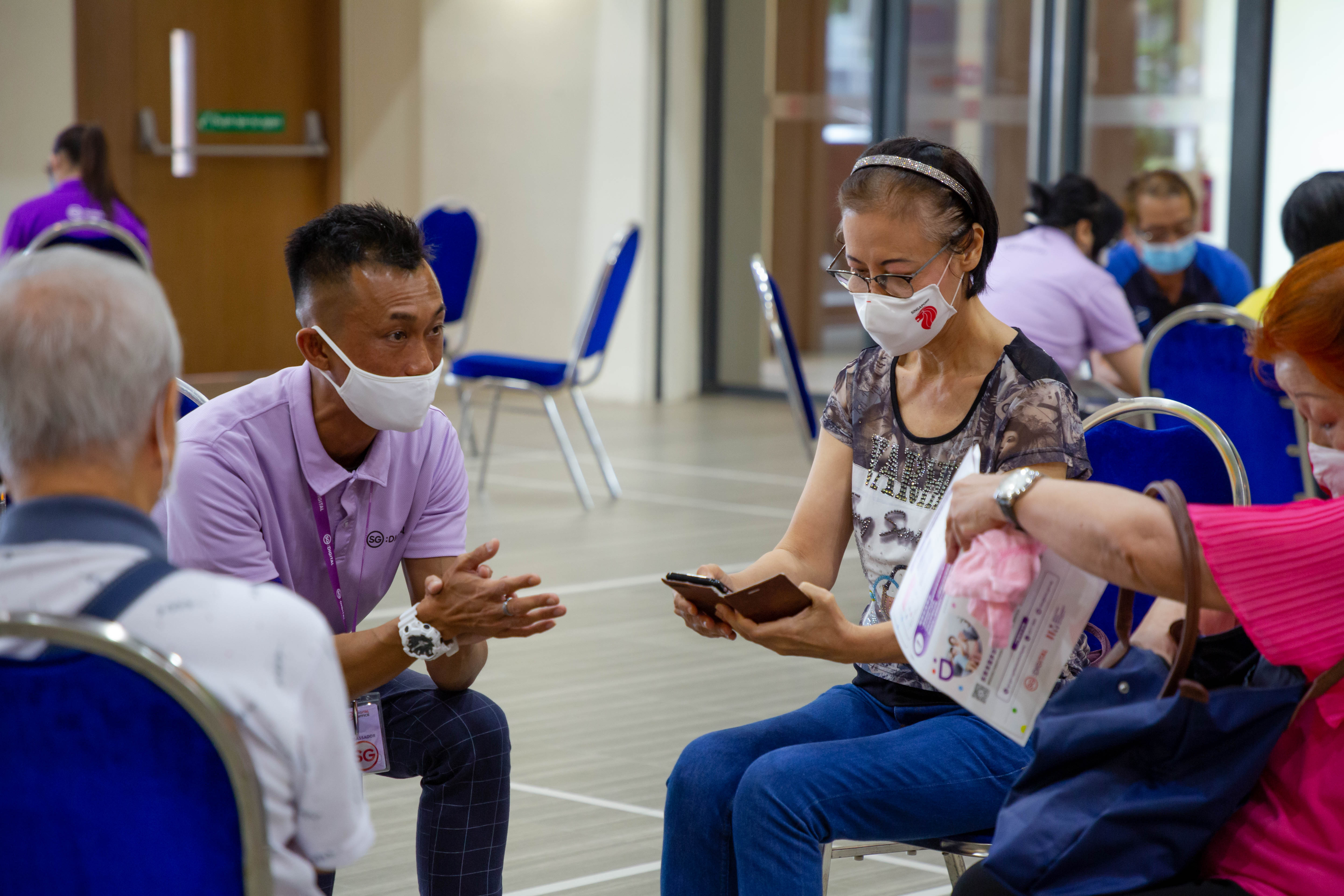
Reaching out to leave no one behind
Because there are so many diverse groups of seniors in Singapore – with different levels of digital knowledge, and across income groups – Seniors Go Digital actually comprises different schemes, to ensure that every senior will benefit.
The scheme which Mdm Khoo was participating in, is for low-income seniors.
Called the Mobile Access for Seniors scheme, eligible seniors can apply for the scheme through the Digital Ambassadors after they attended the Seniors Go Digital - Learning programme at SG Digital community hubs.
Seniors are able to get a smart phone at a subsidised rate (lowest rate starts at $20) bundled with $5 monthly mobile plan.
After “unboxing” these phones right after collection from selected CCs or Senior Activity Centres, the Digital Ambassadors who are onsite will then help them to insert the SIM cards and teach them how to use it.
This training is usually spread over four weekly sessions – called Digital Learning Circles - as these seniors are starting at a very basic level, and may not even know how to turn on the phone.
About 800 seniors have benefited from this programme since it was started in July.
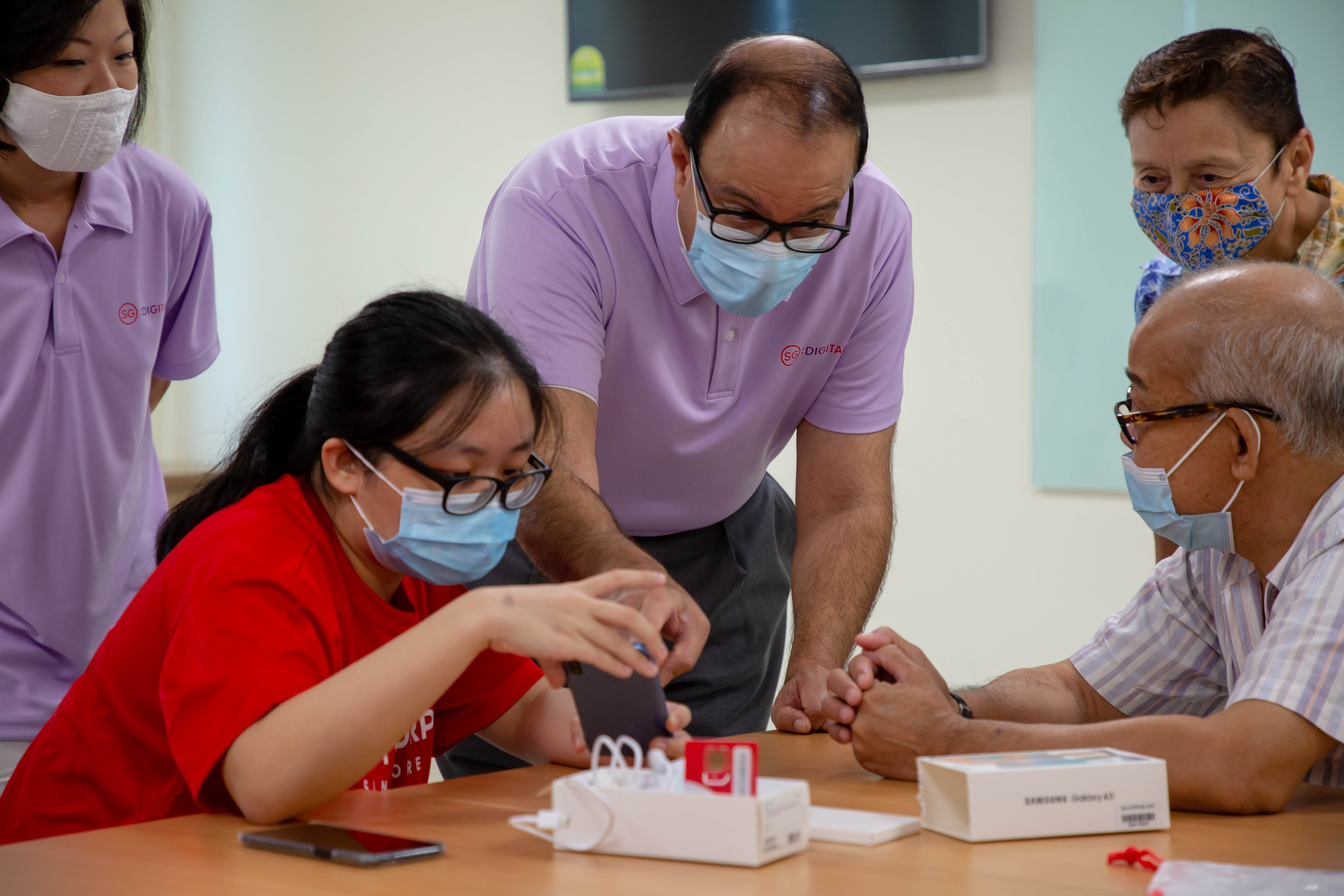
Something for everyone
Then there is an array of programmes for seniors who may already have their own mobile phones, or have some basic digital knowledge.
Those who are more adept can learn online.
If they prefer face-to-face coaching, they can simply head to any of the 30 CCs or 25 public libraries island-wide with their phones in hand, to meet a Digital Ambassador.
It is a one-stop service, like going to the polyclinic to see a doctor.
The ambassador will teach them specific skills which they want to learn, like using Whatsapp, how to scan QR codes or making e-payment.
Sometimes, IMDA organises special learning journeys – like setting up a “mini-mart” at the CC for seniors to practice e-payment for items like tissue and hand sanitizer.
Overheard at a recent e-payment journey at the Teck Ghee CC, a senior who was paying at the “mini-mart” remarked: “This is like masak-masak (play play)! It’s not difficult.”
New digital life
Observing the seniors as they went about trying out e-payment at the Teck Ghee CC, Minister for Communications and Information S Iswaran noted that going digital will open up new avenues for seniors, whose lives have been disrupted by COVID-19.
He said: “The biggest impact of COVID-19 for our seniors has been a sense of not being able to continue with their normal life. They get detached from the regular cycles, whether it is their social activities and other daily activities.
“Digital technology will allow them to stay in contact with friends and family members, buy products, even do exercise and Tai Chi and so on. That contributes not just to the fulfilment of our needs for daily contact and activity, but also towards our mental health because what we want to avoid is a sense of isolation from our society.”
RELATED ARTICLES
We use cookies to tailor your browsing experience. By continuing to use Gov.sg, you accept our use of cookies. To decline cookies at any time, you may adjust your browser settings. Find out more about your cookie preferences here .









